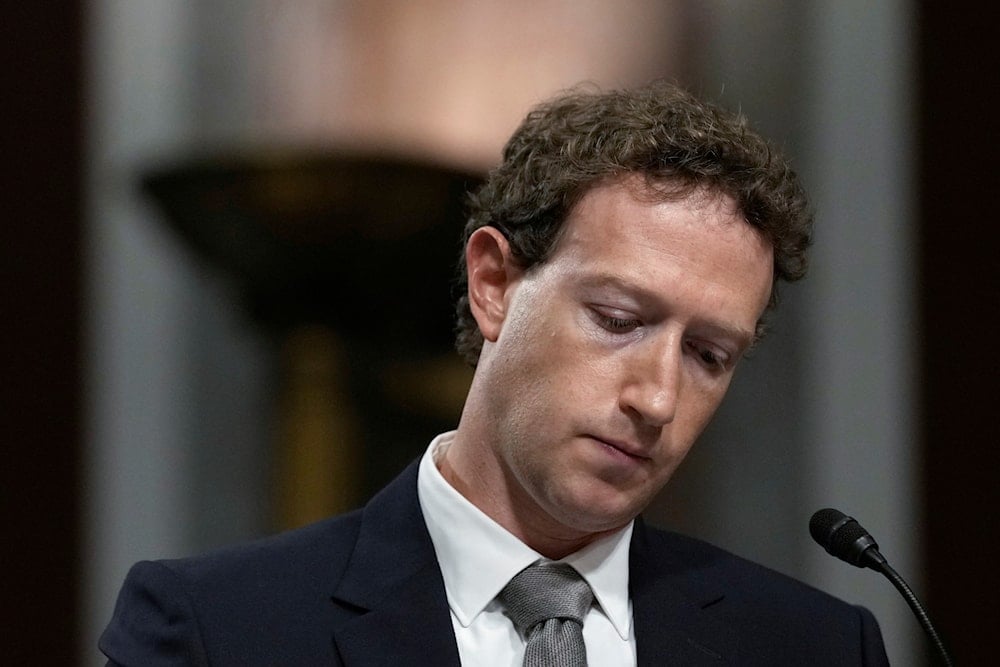Meta sued in Ghana over extreme content's toll on moderators
Meta is under legal fire in Ghana as content moderators sue over severe psychological harm caused by repeated exposure to graphic violence on social media.
-

Meta CEO Mark Zuckerberg listens during a Senate Judiciary Committee hearing with other social media platform heads on Capitol Hill in Washington, on Wednesday, January 31, 2024, to discuss child safety online. (AP)
Meta is facing fresh legal challenges in Africa as content moderators in Ghana prepare to sue the tech giant over severe psychological harm caused by their work.
The moderators, hired to review extreme content such as murders, torture, and child abuse, allege that repeated exposure to violent material has led to depression, anxiety, insomnia, and substance abuse.
A joint investigation by The Guardian and the Bureau of Investigative Journalism revealed the harsh conditions at a content moderation facility in Accra. Lawyers representing the moderators are targeting Majorel, a company contracted by Meta to manage the Ghanaian facility, which employs about 150 workers.
This case, backed by UK-based nonprofit Foxglove and Ghana's Agency Seven Seven, would mark the second legal action of its kind in Africa, following a similar lawsuit in Kenya. Foxglove is also preparing a separate case regarding the dismissal of an East African moderator who attempted suicide.
Moderators face extreme working conditions and mental health issues
According to workers, Meta's contracted moderators in Ghana are paid base wages that fall below the cost of living in Accra, pushing them into overtime where pay rates are lower. Contracts reviewed by The Guardian show a starting monthly salary of 1,300 cedis (£64), with potential bonuses bringing it to 4,900 cedis (£243), still inadequate for local living expenses.
Moderators describe a work culture under constant surveillance, even during bathroom breaks. Despite working solely on Meta platforms, they are not allowed to identify themselves as Meta employees. Michaela Chen of Foxglove stated that moderators are housed in cramped conditions, "five to a flat, two to a room," while being monitored closely by management.
Mental health support has been ineffective, according to the moderators. The services provided were led by non-medical staff, and sensitive psychological data was allegedly shared improperly among managers without confidentiality protections.
Teleperformance, however, insisted that its support staff are licensed professionals and that moderators receive competitive wages, housing in secure accommodations, and access to various amenities.
Lawsuits aim to set precedent for psychological injury protection
Foxglove’s co-executive director, Martha Dark, described the working conditions as the worst she has encountered in six years, accusing Meta of disregarding the well-being of content moderators. She emphasized that these workers are essential to maintaining Meta's platforms but are treated unfairly.
The lawsuits aim to compel Meta and its contractors to provide proper mental health care and enforce adequate worker protections, including recognizing psychological harm as a valid basis for injury claims under Ghanaian law. Carla Olympio of Agency Seven Seven expressed confidence in Ghana's judicial system to support this landmark case, potentially setting a precedent for broader worker protections.
Meta, in response, stated that its partners are required to offer wages above local industry standards and ensure access to counseling and support services.
Teleperformance highlighted its commitment to transparency, claiming it informs recruits about the nature of the job and provides psychological assistance through certified professionals.

 3 Min Read
3 Min Read








